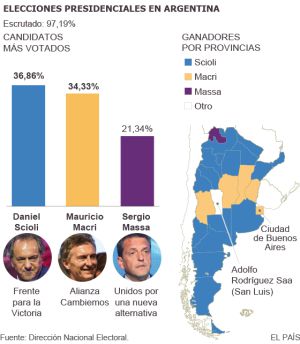MADRID-María Murillo Luque
Fernando Rey Yébenes, the Assistant Coordinator General of AECID, the Spanish Agency for International Development Cooperation that reports to the Ministry of Foreign Affairs and Cooperation through the State Secretariat for International Cooperation and Ibero-America, born in Priego de Córdoba (Spain),agreed to be interviewed via E-mail from Bogotá.
Mr. Rey started his connection with issues related to economy, social situation and development in South America in 1986, when he was a student in ETEA, the Faculty of Economics of the University of Córdoba (Spain).
“In my second year of university, some university friends and I decided to create the Standing Seminar for Latin America (SEPAL), as a place for debate and reflection on the Latin America and the Caribbean situation” Mr. Rey said about his first link to this issues. This Standing Seminar was supported by professors from the Centroamerican University (UCA) of Managua and El Salvador, as well as the University of La Habana.
When Mr. Rey finished his years of college, the Etea Foundation, that received funds from the Inter-University Cooperation from AECID, opened a call for UCA-ETEA-ESADE Convention to coordinate inter-university cooperation between these three educational institutions in addition to lecturing finance at UCA Managua to students in the fourth year of degree. “From 1994 to date, I have applied my knowledge of business administration, management of the Spanish Cooperation in Latin America”, Mr. Rey says, who have lived in countries such as Nicaragua (1994-1995), Guatemala (1996-2000), Perú (2000-2007) and Colombia (2007-2015).
“My career in International Cooperation has always been linked to the AECID and has gone from the bottom-up” Mr. Rey claims.
As the Assistant Coordinator General of the Technical Cooperation Office (OTC) of AECID, distributed throughout the whole world in 23 Offices, his job involves several activities such as “Support in general for the work of the Coordinator of the Spanish Cooperation in Colombia and its replacement in case of absence or illness. Management of financial resources allocated by AECID Cooperation programs or management, monitoring and control of the bilateral cooperation programs” among others.
“We have coordinated an executed funds from Official Development Assistance (ODA) of Spain for approximately 235 million euros over the past 5 years in Colombia, a human resource of about 22 people” Mr. Rey claims about the objectives reached in the past five years.
Taking into advanced the fact that Mr. Rey has lived in different countries of Latin America, I decided to ask him if Spanish Foreign Policies are applied in the same manner or if they are modified according to the place. “Foreign Policy Cooperation of Spain is defined globally for the IV Master Plan for Spanish Cooperation 2013-2016, developed by Central government, regional governments, local authorities, NGOs.. This Plan is taking as a model for the 23 offices of AECID and also each country counts with a National Development Plan that is adapted to each of them”. Mr. Rey explains that in the case of Colombia, AECID is carrying out negotiations with the Colombian State that are totally different from the rest of the countries such as Peru, Ecuador, Venezuela or Bolivia. Also, it is important to take into account that the existence of an internal armed conflict for more than 50 years of operation in Colombia and high indicators of inequality within the country, make the policy of cooperation agreed with the Colombian State different from other countries in the region.
Focusing now in development issues, the water sector is of the main objectives of the Country Partnership Frameworks to improve in the next four years, supporting the participation of user organizations in monitoring the management of water and sanitation, and promoting community participation in watershed management. According to that, Mr. Rey says: “In Colombia, additionally, the sector foresees actions with vulnerable population caused by forced by the violence of armed conflict or natural disaster displacement, especially those resulting from climate change, through watershed management and incorporation of management risks associated with water resources”. “To date seven projects are co-financing (together with Colombian institutions), amounting to 58.7 million euros from Spain, reaching approximately 300,000 holders”. All these intervention are contributing to achieving the MDGs by Colombia in 2015.
The armed conflict that is now occurring in Colombia (FARC) not only has an impact in the harm of people, it also has an impact in economy and social issues. The negotiation process between the Colombian government and the FARC, which takes place in Havana from November 2012, has an Agenda based on 6 points. The end of the conflict, illicit drugs and victims among all.
“Estimating a cost for the post conflict in 45,000 million dollars (Senator Roy Barreras, President of the Peace Commission of the Senate), Colombia would be able to face the cost because of its economy. Also international funding would provide a special value in the first moments” Adds Mr. Rey.
The signing of the Peace Agreement in Colombia would also have its own effects. As Mr. Rey mentioned, “It would affect the achievement of the MDG’s goals and also a considerate GDP growth in 1 or even 2 points”. He also mentioned that the Donor group in Colombia is concern about the existence of trafficking drugs and the illegal mining could still occurring even if it is possible to sign this agreement.
Going back to the armed conflict, and taking into account the latest news about the end of the cease-fire established in December 2014, previously violated by FARC in April 2015, I asked Mr. Rey, which were their expectation to the end of the conflict, “Coordinated international community in the Cooperative Group is supporting the Government of Colombia to find a peaceful solution. We are preparing for an upcoming peace agreement and willing to meet the requirements of the Government of Colombia arising from the negotiations in Havana. Colombia is living a historic moment in the peace negotiations, and I personally hope that this process will culminate a lasting peace agreement.” He finally said adding a last quote: “As the negotiating parties established, nothing is agreed until everything is agreed”.





